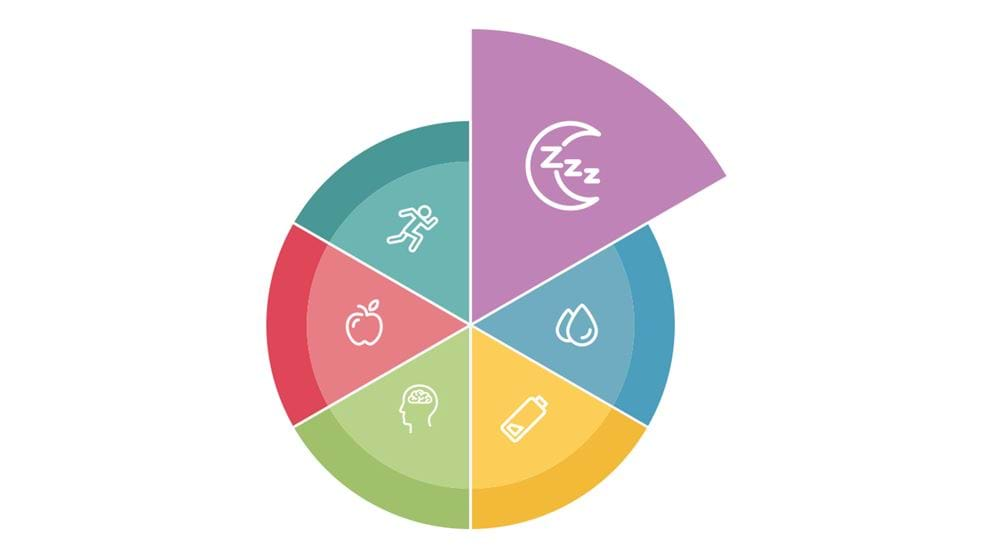How to get better sleep

Working in partnership with Dr. Sarah Hattam MB ChB, MRCGP, DF SRH and Concilio Health.
We know that sleep is important for our wellbeing because it can help us in many ways, including:
- Support our immune system: Sleep lowers the body's stress hormone levels which can help support our immune system.
- Improved mood: We’re more likely to show empathy and consideration for others, and be more of a team player, when we’re well slept.
- Better memory: While we sleep our brains consolidate our memories, moving the important stuff from our short-term memory and store it where it can be retrieved at a moment's notice.
- Better decision making: Our decision making is controlled by the pre-frontal cortex of the brain. Unfortunately the pre-frontal cortex is affected by sleep deprivation. So more sleep equals better choices.
- Better concentration: Numerous research has shown that when we get more sleep we're more alert and less likely to make errors.
- Boost creativity: Research shows that we are more likely to gain insight, have 'Eureka moments' and be creative in generating solutions after a good night’s sleep.
To help you reap all the positive benefits of getting a good night’s sleep, we asked Dr Sarah to provide tips you can start implementing into your lifestyle today.
Tips for getting better sleep



Tip 1: Have a routine
Whether we are working from home or key workers on the frontline at the moment, having a good sleep routine will help to keep us productive. Set a sleep schedule based on your workday routine for a few weeks. If you want to, you can keep a sleep diary to track your progress and note how you're feeling (e.g. sleepy in the afternoons) and adjust the schedule accordingly.
Tip 2: Limit your caffeine and alcohol intake
Caffeine is a stimulant that can make you feel more alert, so try to limit your intake of caffeine such as coffee, tea and energy drinks, particularly later in the day. Although alcohol may help you fall asleep more quickly, it can affect the 'rest and relax' part of our nervous system which can lead to our 'stress switch' remaining "on", and in turn, disrupt our quality of sleep. Keep an eye on your intake or avoid reaching for a tipple in the evening.

Tip 3: Exercise
Research has shown that as little as 20-30 minutes of exercise each day can help improve sleep. Try to be more physically active throughout the day if you can, and find a physical activity you enjoy, such as yoga, following a home workout, going for a walk. Just remember that over exercising or exercising a few hours before bed may be counterproductive as you may be too wired to sleep. Having a schedule for when you exercise that suits your needs and lifestyle can be a way to help you stay on top of it without disrupting your sleep
Tip 4: Make time to unwind
A busy brain isn't conducive to a good night's sleep. A predictable bedtime routine, such as a warm bath, milky drink and reading a book, can help your mind relax.
Tip 5: Avoid bluelight close to your bed time
The Sleep Council UK suggest we stop using electronics an hour before bedtime due to the blue light emitted which can interfere with release of our sleepy hormone, melatonin You can choose to keep your phone in a separate room to help you break the habit.

Tip 6: Set the scene
Dimming the lights an hour before sleep will release your body’s sleepy hormone, and gentle rhythmical sounds such as those on the Windy or Calm apps can help entice you to sleep.
Tip 7: Sleep in a cool environment
One of the cues for our bodies that it's sleepy time is a drop in body temperature so keep your room cooler than the rest of the house and avoid overheating the bed with hot water bottles and electric blankets.
HOW MUCH SLEEP DO I NEED?
This will vary from person to person. Most people need around 8 hours. A Sleep Council Survey found that the majority of UK adults get by on seven hours or less, with a third surviving on just five to six hours per night so most of us could probably do with getting more sleep.
Get more practical tips which you can implement into your daily life to help improve your wellbeing here.


